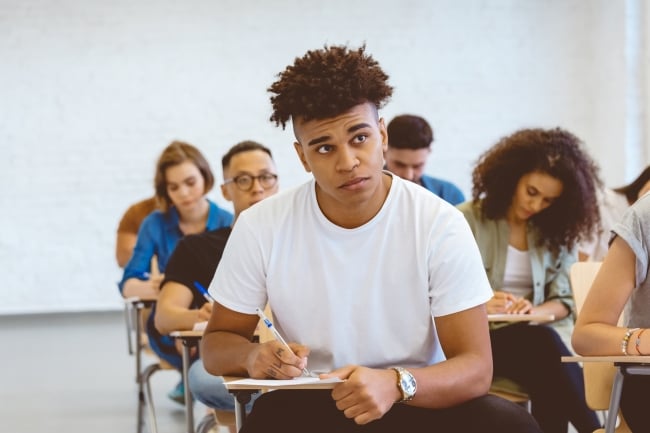You have /5 articles left.
Sign up for a free account or log in.

Around one in five students in higher education have a disability. To provide equitable educational opportunities for students, professors should be aware of best practices in providing and making accommodations in the classroom.
izuseki / E+ / Getty Images
Students with disabilities made up around 21 percent of all undergraduate students and 11 percent of enrolled graduate students, as of the 2019–20 academic year, according to data from the National Center for Education Statistics. However, a minority of these students will register with their campus disability center for accommodations, and fewer will apply their accommodations to their classes.
Instructors at colleges and universities can support all students as well as serve an invisible population on campus through promoting accessibility and universal design principles in their courses.
What’s required: In the classroom, professors are legally required to accommodate students’ accommodations for all kinds of disabilities.
The Americans With Disabilities Act and Section 504 of the Rehabilitation Act of 1973 require postsecondary institutions to provide academic adjustments and auxiliary aids to qualified students with disabilities to provide equal opportunity to education and participation in programs. Accommodations are not required, however, if they would change essential academic requirements, fundamentally alter the nature of a service or result in an undue financial burden.
Academic accommodations may include providing transcription services or assistive listening devices for students who are Deaf or hard of hearing, or offering Braille materials or screen reader software for students who are blind or have low vision.
In 2011, the Office for Civil Rights in the U.S. Department of Education clarified that accessibility means students must be provided the opportunity to acquire the same information, participate in the same interactions and receive the same benefits as students without disabilities with substantially equivalent use of ease.
Remote learning due to the COVID-19 pandemic placed greater focus on accessibility in online education. Over the past decade, students have filed complaints with OCR regarding the accessibility of technology related to their college or university, which was addressed in a May 2023 letter from the Departments of Justice and Education.
The faculty role: To promote student success among students with disabilities, professors can take a number of actions.
- Encourage student registration. To receive accommodations, a student must first self-identify that they have a disability, but incoming students may not be aware of this requirement or may be concerned about being judged if they disclose. Faculty members can serve as a resource to connect students with the disability services office on campus through first-day-of-class announcements, email communications or syllabus language around how to receive support.
- Implement choice in assessment. Some students with disabilities receive accommodations for testing such as additional time or use of a laptop during the exam. Having more flexibility in coursework offerings, a universal design for learning principle, can reduce the burden on faculty to accommodate individual students but instead allow students to select the assessment method that works best for their learning style. Research finds giving students autonomy in the classroom also improves their motivation and can boost academic outcomes.
- Hold students to high standards. Receiving accommodations for disabilities is not reducing rigor or academic achievement for students but should provide an equitable opportunity for learners to participate and meet course requirements, according to Cornell University’s Student Disability Services office. Therefore, professors should not lower expectations for learners with accommodations.
- Accommodate obvious short-term injuries. Sometimes students, particularly athletes, will be unable to complete coursework or assessments due to an injury, such as a broken bone or concussion. Cornell Student Disability Services encourages professors to allow for flexibility with deadlines, extended time or use of teaching assistants as scribes, meeting students where they are without requiring formal accommodations.
- Partner with disability services offices. Working alongside support service staff who may have resources related to syllabus language or how to make materials accessible can alleviate the burden for faculty members and promote inclusion for students. The University of North Dakota established an assistive technology lab in 2023 that provides training and resources for faculty members.
- Consider accessibility in tech tools. In 2015, a blind student sued her university for partnering with vendors who did not provide accessibility in software as required for coursework. When selecting digital learning tools, administrators and instructors should consider accessibility features.
Do you have an academic success tip that might help others encourage student success? Tell us about it.




